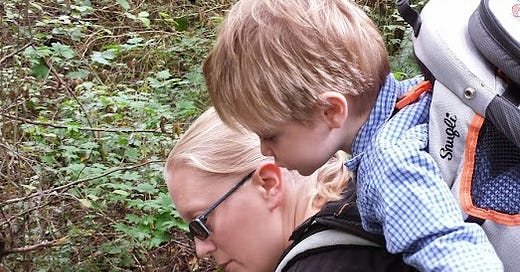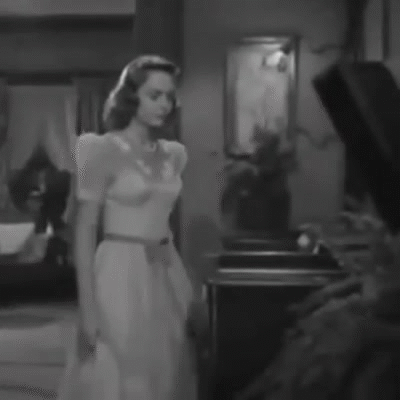Have you ever had one of those moments in life when somebody says something really awful? How do you respond? Do you walk away? Do you file a complaint? Do you just mutter under your breath and make a mental note to trip that person in the hallway at the next opportune moment?
The actors
Robin (me, wink), in a work uniform (various shades of blue), in girl mode (meaning 8 years pre-transition, give or take), happily working in the training department (which is where I taught people how to drive buses), waltzing in from somewhere else in the transit base and through the training office, full of other Operators and Supervisors just like me.
Kevin, another Supervisor in my own workgroup, also in the same uniform, well-groomed, polished military type, recent father to a (then) 1-year-old kid, apparently just waiting for an opportunity to ask me a burning question.
The scenario
If you’re new here (WELCOME!!), let me catch you up. I came out as gay when I was still in high school back in the 1990s. I never liked the term “lesbian,” and so I avoided it if and when I could. I also oddly didn’t like any female or feminine terms for myself (go figure), which made a lot more sense when I came out as a transgender guy in my 40s. My wife and I decided to start a family a while back, and we have two young kids, both of whom were birthed by me. There was some controversy around that at the time, always at work (or with my mother), always with people who struggled to box me into gender roles to make their own understanding simpler. I was “the pregnant lesbian” twice at work, and those were tough years for me. To this day, people still want to talk about that anytime they see me. It’s more than a little dysphoric bizarre.1
The comment
Kevin: “Hey, Robin.”
Me: “Sup?”
Kevin: “I was just wondering… Between you and your wife, which one of you is the father of your kids?”
<I really want a way to insert that record scratch sound right here.>
Me, after a swift moment of recovery: “Well, first off, thanks for only asking the second most offensive question most lesbians have to put up with.”2
Kevin: “Did I ask something offensive?”
Me: “Let me just ask you something in return. Between you and your wife, which of you is the father of your kid?” And then I walked away.
The impact
It was bad. The impact was bad. I was angry, I was irate, I wanted to punch something (or, you know… someone, perhaps). I was offended. I was enraged. I stewed over that comment for months. At this point we can safely say I still stew over it, and it’s been years.
Gay couples face this sort of thing all the time. People around us struggle to fit our relationships into the heteronormative model they’ve come to rely on, and we mess with that pattern in unholy ways.3 And Kevin was not the first person to ask me this sort of thing. It came up all the time. Folks wanted and needed to understand how it was possible to raise children without a mother and a father involved, as though love wasn’t important, as though they had never seen any other type of family in the world until us (never mind the prevalence of one-parent or multi-parent households, step-parent households, kids raised by other relatives, adoptions, surrogacies, and blended families). Some of the worst comments I got were about our kids’ sperm donor, their rights, their need to be a “father” to our children.4 You wanna talk about feeling enflamed? Those hit the target with precision.
And years later, so far beyond that single event that no one else could possibly remember it happening, I faced the prospect of coming out as a transman at work, and the one thing I thought was this:
I did not want Kevin to be right!!
Stupid, I know.

My life as a dad
My dynamic has always been difficult to quantify. I wanted so desperately to be a parent and have kids, but I’ve always identified more as a dad than a mom. But dads who are snuggly and emotionally available are a rare thing. If I could’ve chosen to be the stay-at-home parent, that would definitely have been my jam. I want to make breakfast every morning. I want to pack them lunches. I want to hound them about brushing teeth and combing hair and how is it you have two completely different socks on again when I know we sorted out your sock drawer just last week?!?
Don’t get me wrong. My wife is an amazing mom, great at hugs, supportive of homework at the dinner table and ready to nurture wherever it’s most needed. Which is why we never fit any kind of heteronormative family model before. We don’t fit that now either.
And I wonder how many families are like us.
I’ve started following the writing of some other dads on social media and in the safer places the internet provides, and it’s amazing how many of them are like me. No, they’re not all transdads, but they still struggle against the confines of toxic masculinity. They believe in raising children with confidence and kindness as top priorities. They worry about balancing work and home life, and they want to be present for all of the big and small moments in their children’s lives. They’re trying to let go of gender norms. They get their nails painted and their hair done alongside their sons and daughters and genderfree offspring. Their wives and partners struggle with gender roles, too. Some are navigating the process of fostering or adopting, of facing infertility or difficult pregnancies.
Some of them don’t even want to be called “dads.”
It turns out that I’m a Papi. And I’m the kind of parent who wanted to bring kids into this world with my own reproductive system, to birth them and feed them as my biology permitted. It was a long road between their conception and now, where I’m finally discovering my own comfort in identifying as a father, as a dad. Ask me in another ten years how I feel about that. Maybe my comfort will be different again.
And, yes, I have found a few other transdads who are very much like me, but we are never the norm.
I still don’t want Kevin to be right. I don’t want him to box me into a set of behaviors that are masculine or feminine. I don’t want him to be able to understand my family in his context, because it doesn’t exist there. I want him to see the real me, the guy who loves his kids, the nonbinary person who thinks gender roles are stupid anyway. The dad who was once a mom and who loves that part of myself and my history.
In retrospect, my response to Kevin should have been a different question. I should have asked, “What do you mean by that?” Because in the end, I never did find out what “father” meant to him. And maybe he and I could have found common ground if I’d tried that approach.
What do these words mean to you? Is father something male or masculine exclusively? Is mother only feminine? Do you prefer gender neutral parenting terms? And if you feel a particular way, is that set? Or is it flexible?
Your trans friend,
Robin
Yeah, it’s dysphoric as hell.
If you don’t know, question #1 is “can I watch?” and it gets asked way more often than you might believe.
And also, sometimes, we don’t. Some queer families fit the heteronormative pattern. But we shouldn’t have to.
I am sincerely grateful to the donor who helped us create a family, but they are not someone we know or interact with, and they don’t have a parental title as they do not “parent” our children.







Great article. I will be passing this on. Thoughtful and intelligent. Thank you.
You are clearly doing all the right things. Being a good parent is about helping your kids find out how to be happy. And there is every variation of that under the sun. Everything that is wrong in this world right now is because people don’t allow themselves to be who they are. They pigeonhole themselves and those around them into lifestyles that are not ideal. The result is a lot of resentment, anger and violence.
Happy you have found your path.
I had a traditional father, and he was the best. In your case Robin it sounds like you and you wife have it pretty well figured out. The most important thing is that both of you love your children and that is what really matters. My brother and I had that growing up and even though it was not verbalized we knew our parents loved us. In my own 70 years, I have found that as we get older what others think of us doesn't matter. Just be who and what you are and if someone else has a problem with that so f'in what.